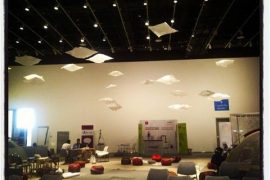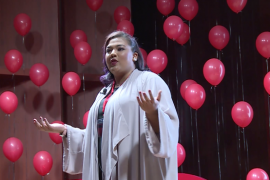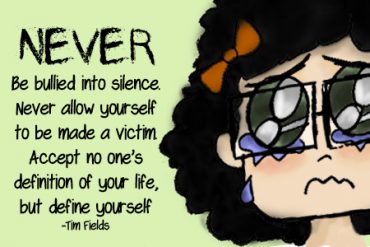Haleema Al Owais has been running her family’s business for over a decade. Across the years she has supported so many businesses in her ecosystem and she is also a patron of arts. Join us as we get to know more about the family business she runs, her sense of passion for building a strong community, and so much more.

- Tell us about your family’s business that you’ve been running for a bit over a decade now.
I work in my family’s business where I run several companies in the field of real estate: the first company is The Sultan Bin Ali Real Estate, this company manages multiple residential and commercial units in Dubai, Sharjah, and Ajman. Then we have Moderna Middle East which handles the properties maintenance for our units. And finally, we have Moderna Contracting which handles the construction part of our units.
- How did you come to run this group of companies?
Our group started in 1972 by my late uncle, Sultan bin Ali Al Owais. My late father, Humaid bin Al Al Owais, took over the reins when my uncle passed away in the year 2000, and he run the business in collaboration with other family members. After my father passed away in 2007, my brother Ali and I began our journey in managing the group.
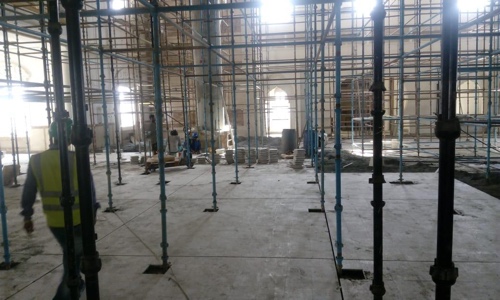
- In your opinion, you being the third succession/generation in management running the family business, what are the main cornerstones built by each generation in Al Owais Group?
When my uncle started the business, he identified the fields of focus in investment and trade. When my father took over, he focused on expanding the existing business. Now, with my brother and I, we are developing a structure to maintain, develop and innovate in the business processes driving the companies. It is very important to diversify the business portfolio, and in our case, we diversified within our core stream of business. So, we added a new construction arm, a maintenance arm, and then we introduced modern systems and processes which were important to hedge our businesses against economic cycles.
- You didn’t have the industry background when you started, so how did get to learn about it enough to manage it?
The moment I joined, I was handed an unfinished building, and I was told to finish it and rent it out in six months. I was overwhelmed, but my motivation was bigger than my anxiety and my frustration. I was driven by a deep sense of responsibility towards my family, it energized me to go through the first tough challenge in the business and persist until the goals were achieved.
It was a struggle to find the right answers starting in a field that I have never studied nor worked in, and it took researching a lot in the existing field in the UAE, taking up advice from the people that the family worked with. The company’s employees also served as a great source of guidance and reassurance and I’ll always be grateful for their transparency and loyalty.
In our line of business, there are a lot of details and several phases for each project. So, a key ingredient that helped me understand the business is to continue to understand and experience each part of it myself. So I used to personally do the site inspections, visit the tenants, go to government departments to complete the necessary paperwork. I had to start from the bottom and work my way up. I believe it is important for business heads to experience the entire process of their business. This helps them improve the quality of their decision-making and it makes them better leaders.
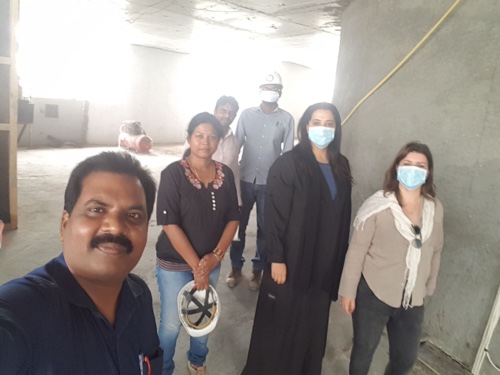
- The biggest issue with many family businesses is that they get stuck doing things the same way they have operated for years, even when the business outgrows that structure. At what point did you decide to revamp the whole business processes?
I believe the success of any family business is more or less built on the same principles as any other business. Yes, in a family business, there is the legacy, the expectations, and not to mention, the responsibility towards the family. It can get a bit emotional in that sense.
However, I think innovation is the winning philosophy and this is what we did in our family business. I once read that for family businesses, there are three categories of management: the creator, the caretaker, and the cremator. The idea of being the cremator terrified me, and it was a strong motivation to drive our business in a very conservative yet innovative way. We want to re-invent the 3rd phase of the family business into the creator, the caretaker, and the recreator altogether.
So, while keeping the integrity of the business, we also made sure we kept up with the development the country is going through. We also readdressed the customer service experience; we needed to make sure we’re giving our residential and commercial tenants the most comfortable experience. We wanted to fulfill their expectations for a perfect home or a thriving business. Furthermore, we are incorporating technology into our systems, by that, we can upload parts of the process through an app and make it accessible to manage from across our sites. Old school has served well in the past. While some elements are still preserved, innovation when relevant has been acquired.
- How do you keep your employees emotionally invested in the company and keep them motivated to give their all?
I learned that employees are what make a successful company, more than any vision or mission. Employees’ happiness is the key. Taking care of their needs and making sure they have a clear path of growth ahead of them created the loyalty and dedication we aspired for. We prioritize investing in human capital, and with that. their enthusiasm and drive keep the wheels turning and make the business thrive. We’ve also found that incentivizing certain jobs shows the employees that the company appreciates their efforts, which of course, had its positive impact on their work and sense of ownership in the company, so it’s always a win-win situation.
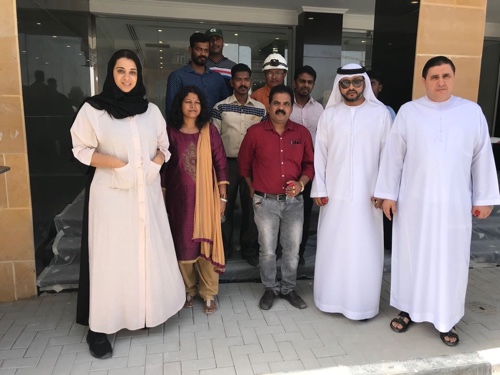
- What have you learned from managing such a diverse team of employees with different age groups and nationalities?
There is a power in genuine conversations. It is important to have a conversation with each of them as much as possible, and I find it fascinating how much I learn from each of them. This number of nationalities that make our company is treasured, the diversity it brings makes the experience all the more valuable. Furthermore, the internship programs we run for university students brought us younger generations who joined us for a brief but extremely fun time.
I’ve recently joined two of our departments’ heads on a work trip that happened to be in their hometown. We enjoyed the experience, relating on grounds different than work can help build more understanding.
- You eventually went back to pursue higher education in a relevant field to the business. How did that add to how you run the business?
Urban planning and community building always fascinated me. Now that I have an academic dimension to my passion, it gave me a better perspective as a visionary. It moved me from planning just units to planning whole communities. I used to look at the blueprint from a business angle, now I look at it from an urban planner’s eyes, taking in all that makes a single unit feasible to plug it into a successful community.
- What and where are your inspirations when it comes to architecture?
In the UAE there is Heart of Sharjah, Al Fahidi district, and Al Majaz area. While outside the UAE, I’m fascinated by properly restored historic areas, one of the areas that come back to me is Colaba area in Mumbai; the buildings still retain their dignity in spite of the economy dips.
Mainly what intrigues and inspires me is the architecture that has taken the essence of the place’s identity and infused those elements into its designs or restorations.
- You have a great sense of duty towards the community and you believe in the culture’s role in making a community thrive, which reflects in your arts patronage across the years. The most recent of which is the blue mural in Sharjah. Tell us how did that project come around and what it means for you?
I have always been an art appreciator and especially loved murals, frescos, and street art, as they have a bigger impact on society and connecting people.
Maraya Art Centre in Sharjah has recently taken the movement of incorporating art into the urban fabric of Sharjah. This initiative, ‘Jedariya’, brings in talented artists of the UAE and from around the world to create masterpieces on prominently located buildings. The project I was involved in was hosting the artist Vincent Abadie Hafez AKA Zepha. The project was to curate the beautiful artwork on the Sharjah Awgaf building taking the letters of the Quranic verse: “By no means shall you attain Al-Birr(piety, righteousness) unless you spend (in Allah’s cause) of that which you love; and whatever of good you spend, Allah knows it well” (3:92)
In this context this verse carries a lot of messages, to be a contributive part of the community, one must be responsible for how they support the community. We are representing our religion, Islam, and must do it in a dignified transparent way. As an Emirate – Sharjah- that supports art, sharing the beauty with the citizens and visitors is essential to its growth.
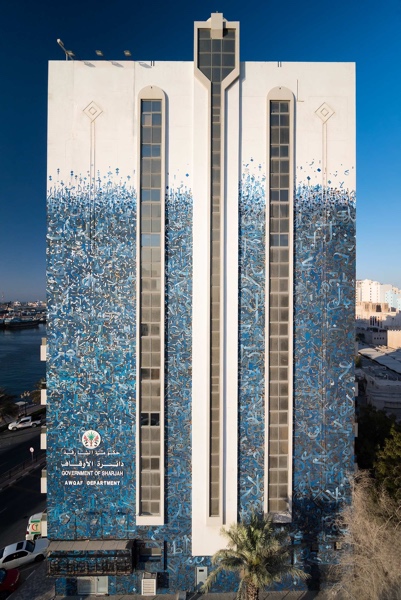
- You’ve also sponsored many small businesses that you believe in. How did that come about, and what does supporting those businesses mean for you?
It comes down to the people involved in those businesses. I love seeing how dedicated the small business owners are, they put their life, their sweat, and the small funds they have into building a business that supports them and others. They do their due diligence in research and legwork into making sure of their business’s feasibility. I find it refreshing and heartwarming to be a part of their inevitable success.
The build-up of the ecosystem at this early stage is extremely fragile and in need of a lot of support and nurture compated to the established ones. It is the responsibility of the whole community to support them in any way possible, to help them successfully advance into a more secure phase of their business. To help them stand on their feet takes a whole city.
- Your support for small business is beyond just monetary, you have been advocating for them whether on your social media or in your networks, as well as ensuring to be their customers to support them. Tell us more about this and what it means to you?
It doesn’t take much to be supportive, monetary support is one pillar of many levels of support. Marketing, promoting, giving business advice, lobbying for a better system, connecting them to the right people that might help that business grow, all this does not take much and goes a long way for small businesses. We have a lot of platforms to support small businesses and the UAE network is tight and close, so support is not a hassle if you want to do it right.
I believe everyone should do their bit. New businesses don’t have the same strong foundation that established businesses have. And so helping new businesses stand on their feet means that in ten years the ecosystem we are in will be stronger and will help all the businesses in it prosper.
